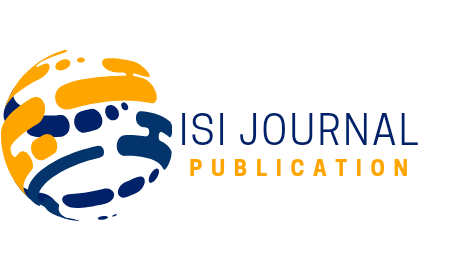The Ethics of Academic Publishing: What Every Author Should Know
In the age of research in this world, publishing is one of the most important resources to share information, advance science and build a reputation. But with the thrill of publication also come serious duties. Knowledge of publishing ethics is critical to the researcher or writer who wants to achieve credibility and make contributions of significance within their discipline.
This guide will help you to understand the foundations of academic honesty, the significance of authorship transparency, and the challenges that come with journal publication and online publication services.
Why Ethics Plays a Crucial Role in Academic Publishing
Every piece of writing from articles to books and research papers has an impact in the academic community which is world wide as well. Weak academic practice, intentional or nonintentional, can damage reputation and even undermine an author’s credibility.
By following publishing ethics, many authors not only enhance their credibility but also ensure integrity of the content they provide world wide as well across all disciplines.
The Key Principal of Publishing Ethics
At the heart, publishing ethics revolves around fairness, honesty, and responsibility. Journals, institutions, and publishers expect authors to:
- Provide authentic content without any fabrication.
- Acknowledge contributions and collaboration accurately.
- Avoid plagiarism, copied work, and AI to ensure authenticity.
- Disclose conflict of interest.
- Respect confidentiality during the peer-review process.
These practices will help to unlock the true potential of academic honesty and secure the quality of public research.
Academic Honesty: The Foundation of Trust
Academic honesty is the main foundation of ethical publishing. It requires researchers to present authentic work, credit sources, and avoid misstatement of data.
Unfortunately, problems such as plagiarism, falsified results, and duplicate submissions still occur. Authors must know that the shortcuts may lead them to temporary success but it will also increase the chances of jeopardizing their integrity along with their work which will have an impact on the long run. Maintaining academic honesty is the best way leading to a successful future as it builds a strong academic reputation.
Authorship Transparency: Giving Credit Where It’s Due
One of the most controversial topics in publishing ethics is authorship transparency. It plays an integral role in the authors community as it helps to recognize who made a significant intellectual contribution to the research. Other individuals who offered technical help, funding, and minor support should be recognized in the acknowledgements.
By practicing authorship transparency, authors avoid dispute, ensure fairness, and prevent “ghost” or “guest” authorship which are one of the most common ethical violations in academia.
Journal Publication: Navigating the Standards
When submitting your work for journal publication, one must make sure that they have followed all the ethical guidelines set by the journal. These may include:
- Submitting the only original manuscript which is not under review elsewhere.
- Follow all of the formatting and submission requirements.
- Explicitly disclosing funding sources and conflict of interest.
- Respecting the peer-review process and not attempting to influence reviewers.
Many journals now use softwares which helps in detecting plagiarism to keep the authenticity of the content along with its integrity. Violating publishing ethics during journal publication can result in bans and reputation harm.
Online Publication Services: Pros and Cons
The rise of online publication services has transformed the way research is shared. Online digital platforms offer faster publication, worldwide reach, and easier accessibility. However it also makes the work vulnerable towards risks such as predatory journals.
Predatory publishers exploit by charging them fees without providing review nor editorial oversight. In order for an author to avoid predatory publishers they must be very vigilant while selecting any online publication services they use.
Choosing reputable journals and platforms ensures that your work is trusted, visible, and sounds ethically correct.
Ethical Challenges that an Author Goes Through
Even the best researchers may fall into ethical challenges. Here are some of the most common challenges a researcher comes across during his journey:
- Plagiarism – using words from another source without consent and giving credibility
- Data Manipulation: altering the real outcome so it can fulfil expectations.
- Duplicate Submission: Submitting the exact same paper to different journals, all at once.
- Improper Authorship: Not mentioning nor quoting the names of the authors who played an impactful role in your work.
Recognizing and avoiding these issues will help enhance integrity and build trust in the research community.
Best Practice to Stay Ethical
In order to maintain firm publication ethic, authors must follow these practices:
- Keep in-depth research notes for transparency.
- Use plagiarism tools before submission.
- Discuss authorship roles prior in the project.
- Choose reputable journals for journal publication services.
- Always quote sources and acknowledge collaboration properly.
Once you practice these things in your work flow, it will protect your reputation and make your work more authentic as it will show the true form of academic honesty.
The Role of Publishers in Institutions
Since the real responsibility falls in the hands of the author, publishers and academic institutions also play a significant role in publishing ethics as well. The journals are expected to have the following:
- Give explicit guidelines regarding submission.
- Implement rigid peer-review processes.
- Investigate misconduct allegations fairly.
- Retract unethical publication.
Academic honesty and authorship transparency is something which should be practiced by everyone regardless of the discipline, ensuring ethical publication as a norm.
The Future of Academic Publishing Ethics
As technology evolves, so do the challenges along with it. There are many Artificial Intelligence tools which are open for everyone’s access in order to make things easier and new online publication services are also coming across in order to reshape the future of academic publication.
These innovations do offer great enhancement but along with it there are a few factors on which authors and researchers should also work on so there is no room for anyone’s integrity to get harmed in any way possible.
